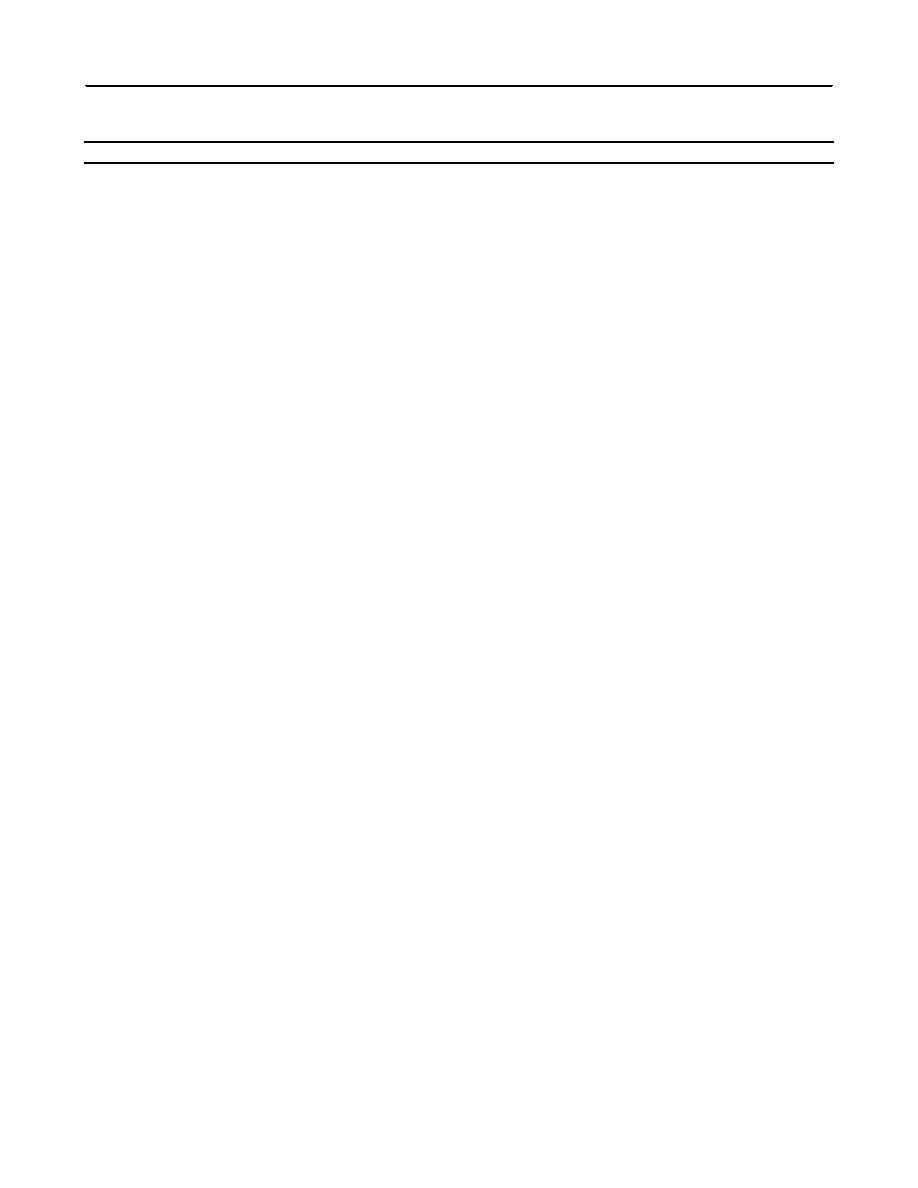
| Tweet |

Custom Search
|
|

|
||
 TM 55-1905-220-14-10
5-43. CYLINDER BLOCK - MAINTENANCE INSTRUCTIONS (Cont).
LOCATION
ITEM
ACTION
REMARKS
INSPECT (Cont)
(3) Main bearing bores are line-bored with the bearing caps in place and thus are
in longitudinal alignment. Bearing bores may be considered properly aligned
with one another if the crankshaft can be rotated freely by hand after new
bearing shells have been installed and lubricated and the bearing caps have
been secured in place and the bolts tightened to 180-190 lb-ft (244.0- 257.6
Nm) torque. If a main bearing bore is more than .001 inch out of alignment,
the block must be line-bored or scrapped. Misalignment may be caused by a
broken crankshaft, excessive heat or other damage.
(4) If the main bearing bores are not in alignment or a replacement bearing cap is
used, the block must be line-bored. Install the bearing caps in their original
positions (without the bearing cap stabilizers) and tighten the bolts to 165-175
lb-ft (223.7-237.3 Nm) torque. Line-bore the block, but do not remove more
than .001 inch stock. After boring, all bores must be within the specified limits
3.812 inch to 3.813 inch.
j. Replace loose or damaged dowel pins. The dowels at the ends of the cylinder block
must extend .630 inch from cylinder blocks. The dowels used to retain the
crankshaft thrust washers on the rear main bearing cap must extend .110 inch to
.120 inch from the surface of the bearing cap.
k. If used, replace damaged or broken cylinder head studs. Drive new studs to a
height of 4 3/8 inch + 1/32 inch above the block at a minimum of 75 lb-ft (101.7 Nm)
torque. Also, examine the cylinder head retaining bolt holes. If the threads are
dam- aged, use a tap to "clean-up" the threads or install an helical thread insert.
5-640
|
||
 |
||